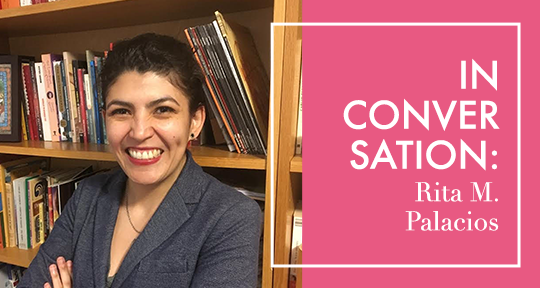Rosa Chávez is La Poeta here, but she defies definition. The Mayan artist and writer has walked a variegation of paths and left her indelible mark on scores of people and places, ensuring that her legacy will be a monument to curiosity, surprise, and multiplicity. In the following profile, Editor-at-Large José García Escobar speaks to the Guatemalan La Poeta and her ever-widening world of poetics, which trespass the page—and language—to take on other numinous forms.
La Poeta walks towards a small table. She lays a sonaja, a tiny drum, some colorful ronrones, and a few whistles made of clay upon it, as the electric sounds of a turntable fill the room. Soon, from the speakers, the voice of Berta Cáceres comes: “We are fighting to protect the rights of indigenous people,” and her speech echoes across the small room of a school in rural El Salvador. “We have struggled for more than five hundred years,” Berta goes on. “We have always lived as a community,” steps in the voice of the indigenous leader Lolita Chávez, “and our community includes mankind, but also plants, birds, fish too, and all the animals.” Wearing a shirt and a pair of small glasses, the DJ turns the knobs to move the musical landscape, which carries the activists’ voices.
“I remember that children had decorated the classroom using bits of paper, mimicking the lush fields outside, the green mountains,” says Rosa Chávez, La Poeta.
La Poeta takes then the microphone.
“Pick it up. Take what’s yours,” she says, she recites, she conjures. “Take it. It’s yours. Don’t let them take it from you. Pick it up. Leave it under the sun. Let it dry. Pick the weevils off it,” La Poeta says, and a tiny whistle and a pair of soft cymbals hiss across the room. “One by one, remove the kernels. Look how it shines: red, yellow, white, black. Undo its body. Grind its body. Cook its body. Don’t toss it aside, though. Don’t give it a bad look. Never forget to grow more.”
That’s how one of Selva y Cerror’s first shows occurred—August of 2017, during the Festival Mundial de Poesía Cien Voces, in El Salvador; the song I’m describing is called La Abuela y el Maíz. Selva y Cerro is a Guatemalan musical duo consisting of DJ and producer Teko (Andrés Azmitia)—best known as Sonido Quilete—and Rosa Chávez. It is also the latest project of Chávez, out of her wide-ranging roles as poet, mother, performer, actress, teacher, artisan, cultural manager, screenwriter, filmmaker, bisexual, Maya K’iche’-Kaqchikel.
Rosa contains multitudes. She insists, however, that she’s a poet—an interesting fact considering that she never sought publication. She says that even today when she writes, she’s not thinking of “putting together a book,” despite having published five. Urges move her, motivate her. The multitudes inside Rosa talk to each other. Poetry took her to performance. Performance to the theatre. Theatre to community work and human rights. Poetry is the thread that weaved, and still today weaves, the urges of Rosa’s career. For Rosa Chávez, poetry has no end.
READ MORE…








